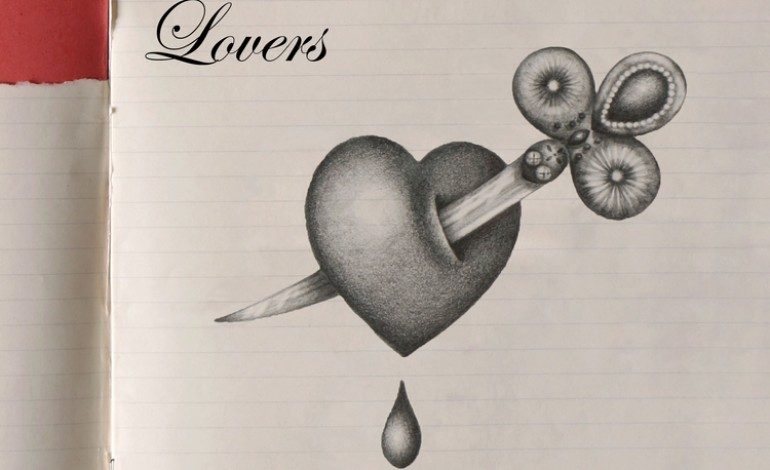

A Familiar Allure
Guitar-driven albums are in no way rare in American music. The guitar is very clearly the symbol of so much American music history that it’s become more of an icon than an instrument today. Finding a truly original or engaging guitar album though is an entirely different challenge. The popularity of the instrument has plastered it all over the face of music – from shoegaze to doom metal to pop – and as such, the guitar has fallen victim to its own popularity. On Lovers, Nels Cline uses this to his advantage to create familiar retreats in unfamiliar spaces, creating a surprisingly engaging guitar album.
The album is immediately recognizable as a sort of Jazz guitar recording with an intriguing twist. Both “Glad to Be Unhappy” and “Beautiful Love” are soft pleasant songs that evoke a strangely familiar yet unrecognizable feeling of nostalgia. This causes the listener to lower their guard and drop any pretensions they may have had about the album or its style.
“The Night Porter Max Mon Amour” takes a more serious turn after all the whimsy of the previous tracks and falls into cacophonous dissonant sections that put the listener on edge. Fortunately the sinister tones on the track give way to soft pleasant guitar tones present in the previous songs. “Cry Want” is a pleasant and somber song, a sad guitar weeps its tears along the track softly. It is incredible in its beauty and has a light lounge jazz twinge to it. The listener can almost feel the sticky grip of the pleather upholstered booth against them as the wispy thin cigarette smoke wafts across the lounge. The main difference between it and a standard lounge track is that about three quarters of the way through it there is a brief section of ominous background music that adds just a little bit of danger into an otherwise pleasant track.
This theme of juxtaposition carries throughout the album, “Lady Gabor” wavers between an expressive guitar serenade, an orchestral piece, and something out of a Tom Waits track. All of which melds about halfway through the track blending with a fevered urgency that continues to rise for nearly the whole remaining length of the song. This, of course, leads again into soft lounge guitar on the “The Bed We Made” essentially capturing the themes of the album, that love is often a battle of moments of bliss fraught with tremors of nervous terror that either linger in the background or force their way to the surface, as they again do on the closing of this track.
The remaining songs on the first section of this album expand on this theme of romantic terror, “Secret Love” lives up to its title, being a bit more urgent but upbeat, like sneaking into the rooms of high school sweethearts from the fire escape in a crowded steamy city at twilight. “Have I Dreamed” calls to mind feelings of longing but is not as immediately engaging as many of the other tracks on disc 1, coming across as just a bit too recognizable.
Disc 2 kicks off with “Why Was I Born” which brings to mind thoughts of a sunny field that slowly turns into a city stroll at midday. The track however almost seems to be missing something, perhaps a crooning voice or somber lyrics with an upbeat tempo, the bones are there but it feels somehow incomplete. “Invitation” is a short but upsetting track as it rises to feverish highs punctuated with a sense of panic painted along the whole of this relatively short track.
This panicked feeling continues into “It Only Has to Happen Once.” With a driving drumbeat and low trombones throughout the track, the nervous guitar work wails like a downed plane on its way into the ocean. That creates one of the most compelling tracks on the entire album breaking up the monotony that was starting to loom overhead.
“Snare Girl” is a wonderfully pleasant track, immediately bringing the listener to the beach where wood blocks and drums play in the background, but again metal pipes and warped instruments occasionally pierce there serene imagery with something far more sinister that is constantly threatening to break through to the surface.
“So Hard It Hurts Touching” is very unlike any other track on this album, its largely ambient and doesn’t possess much shift in tone or theme through its entirety, which is disappointing when put next to the other tracks that have relied on tonal shifts to remain engaging. The lengthy album finally closes out with “The Bond” which serves as a welcome return to the pleasant guitar from some of the previous songs. It does however, also carry a somber tone into it, almost as though the song is describing a bond through separation That is until the halfway mark when the tempo slightly increases and everything pitches up and becomes a bit louder. It’s essentially an acoustic version of the crescendos that have become so prevalent in Post Rock music, leaving the listener with a massive sense of clouds as they feel these two lovers overcome everything that has come their way, the bond proving stronger than ever.
So often artists will try and hide an instrument within lays of reverb and feedback in order to try and make it more interesting or unfamiliar. Instead of hiding or changing the guitar, Nels Cline has managed to take the heart and soul of the instrument and bring it to the forefront of his music. Without a single word, Cline tells a heart wrenching tale of two lovers and the obstacles that stand in the way of their happiness, all through an inventively simple use of modern music’s most iconic instrument. Other artists should take note of Cline’s clever inventiveness and use it to push their respective genres and instruments into the warm familiar places that they have always inhabited and look at them in a whole new light.
